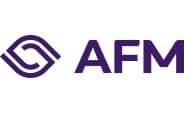
Sanctions against Russia, what does the AFM expect from institutions?
Given the situation in Ukraine, the sanctions regime has been amended by the European Union with respect to restrictive measures relating to actions that undermine or threaten the territorial integrity, sovereignty and independence of Ukraine. Through this news item the AFM would like to inform you about these sanctions. If you would like to keep up-to-date with the current state of affairs, you can subscribe to the De Nederlandsche Bank and AFM Sanctions Alert (here).
Sanctions
On 21 and 23 February, the sanctions regime was amended with regards to restrictive measures relating to actions that undermine or threaten the territorial integrity, sovereignty and independence of Ukraine. You can click here for the implementing regulation and click here for the decision. Click here for the publication in the Official Journal of the European Union. These regulations state that existing sanctions are supplemented and also new sanctions are imposed.
What does the AFM expect from institutions?
The AFM expects the following from institutions:
- Check whether these regulations apply to customers, the counterparty in a financial transaction or product or the financial services that are provided, for example;
- If these regulations are applicable, apply the commandments and prohibitions in the regulation immediately: freeze the assets and/or economic resources, prevent the assets and/or economic resources from being made available directly or indirectly, and prevent the prohibited financial services from being provided;
- Report the 'hit' immediately by completing the report form and sending it to the AFM via meldingsanctiewet@afm.nl. Read the instructions on the AFM website;
- If the AFM asks questions in response to the notification, answer them promptly.
- Also check whether the 'hit' can be designated as an unusual transaction within the meaning of the Money Laundering and Terrorist Financing Act (Wwft). If so, report this transaction to FIU-Netherlands without delay;
- In certain cases, a 'hit' can also be an incident within the meaning of Article 1 of the Market Conduct Supervision (Financial Institutions) Decree (Bgfo). Check whether this is the case. If so, also report the hit as an incident to the AFM.
The AFM wishes to draw the attention of institutions explicitly to the fact that it is also prohibited to participate, knowingly or intentionally, in activities of which the purpose or effect is to circumvent the sanctions imposed. If you observe possible signs of circumvention, you should also report this.
What are sanctions?
The United Nations (UN) and the European Union (EU) impose international sanctions. The UN and EU impose this against countries, organisations, companies and individuals in the event of a threat to international peace and security, for example. They can also impose sanctions to stand up for human rights, compliance with international law, democracy and the rule of law. For more information on international sanctions, see the website of the Ministry of Foreign Affairs.
What is the role of the AFM?
Pursuant to the Sanctions Act 1977, the AFM is charged with supervising compliance with the sanctions regulations relating to financial transactions. Investment institutions and investment firms fall under the supervision of the AFM.
Everyone must avoid acting in violation of sanction regulations. Violating sanction regulations is an economic offence and therefore punishable.
Finally, for questions you can contact the Business Desk. The Business Desk can be reached by email at ondernemersloket@afm.nl or by telephone at 0800 - 6800 680 (available on Mondays and Wednesdays between 10:00 and 14:00).
Contact for this article

Would you like to receive the latest news from AFM?
Subscribe to our newsletter, we will keep you up-to-date.